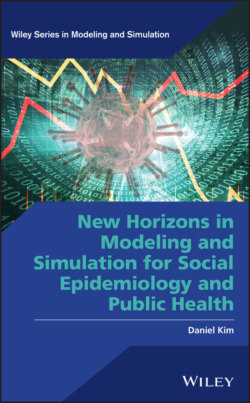Читать книгу New Horizons in Modeling and Simulation for Social Epidemiology and Public Health - Daniel Kim - Страница 19
1.7 What Do We Know About the Social Determinants of Health?
ОглавлениеAs Bambra et al. (2010) have noted, there are clear limitations to the existing evidence based on the social determinants of health. First, observational studies that dominate the literature can only hint at possible interventions and their associated health effects; causal inference is an inherent limitation. Second, there is still only sparse evidence on the impacts of interventions on the social determinants of health. Bambra et al. (2010) conducted an “umbrella review” of the existing systematic reviews of the evidence on specific interventions on the social determinants of health spanning housing/living environment, work environment, transportation, health and social care services, agriculture and food, and water and sanitation. They identified some suggestive evidence that certain categories of interventions may impact inequalities regarding the health of specific disadvantaged groups, particularly in the fields of housing and work environment. Yet in other areas, such as evidence on policies in education, the health system, food and agriculture, and more generally on the influences of macro‐level policies on health inequalities, the empirical literature on interventions was more limited (Bambra et al. 2010).
In a more recent umbrella review, Thomson et al. (2017) adopted a systematic review approach to summarize the state of knowledge on how public health policy interventions (e.g. taxation and educational campaigns) may impact health inequalities such as differential effects across socioeconomic groups or effects of interventions targeted at disadvantaged groups. After searching studies published up to May 2017 within 20 databases (e.g. Medline, EMBASE, CINAHL, PsycINFO, Social Science Citation Index, Sociological Abstracts, and the Cochrane Library), the authors identified 24 systematic reviews reporting 128 relevant primary studies. They then summarized the evidence on policies (fiscal, regulation, education, preventive treatment, and screening) across eight public health domains (tobacco; food and nutrition; the control of infectious diseases; screening; road traffic injuries; air, land, and water pollution; built environment; and workplace regulations). The systematic reviews were mixed in quality, and the results were mixed across public health domains. For the tobacco, food and nutrition, and control of infectious diseases domains, the authors found evidence to suggest that fiscal and regulation policies were more beneficial for reducing or preventing health inequalities than educational campaigns (Thomson et al. 2017).
